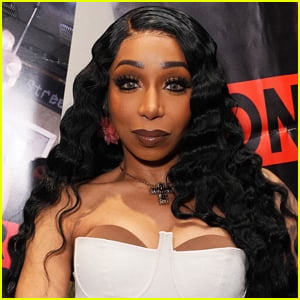
Tiffany “New York” Pollard has shared her thoughts on gender identity and expression, revealing her connection to the non-binary community in a recent interview. The 43-year-old reality television personality discussed her experiences and feelings regarding gender fluidity, emphasizing the importance of self-acceptance.
In her conversation with Pink News, Pollard expressed that the non-binary label resonates with her personal journey. “I really do resonate with non-binary because I feel like we are so dual without even recognizing it,” she stated. Pollard elaborated on her understanding of gender, noting, “It takes two sexes for us to get here, so some days I may feel a lot more masculine and sometimes I’m super feminine, and that’s OK.”
The term “non-binary” is defined by GLAAD as a descriptor for those whose gender identity and/or expression falls outside the traditional categories of “man” and “woman.” This perspective aligns with Pollard’s own experiences, which she articulated during the interview.
Pollard also reflected on her queer identity, recalling her first kiss with a girl during her junior high years. “I knew and it was fine. It felt good, it felt right. It had to happen at some point,” she shared. This moment marked a significant step in her journey of self-discovery and acceptance.
Addressing the challenges of coming out, Pollard stated, “You gonna come out of that closet and once you do it’s like, ‘OK, wow, this world is open to me in new ways and sweetie, shoving me back in the closet is never going to be an option.’” Her words resonate with many who have navigated similar experiences in the LGBTQ+ community.
Pollard’s candid reflections contribute to the ongoing dialogue surrounding gender identity, encouraging greater understanding and acceptance within society. Her experiences highlight the importance of embracing one’s true self, regardless of societal expectations. As discussions about gender identity continue to evolve, Pollard’s insights offer a valuable perspective for those exploring their own identities.






